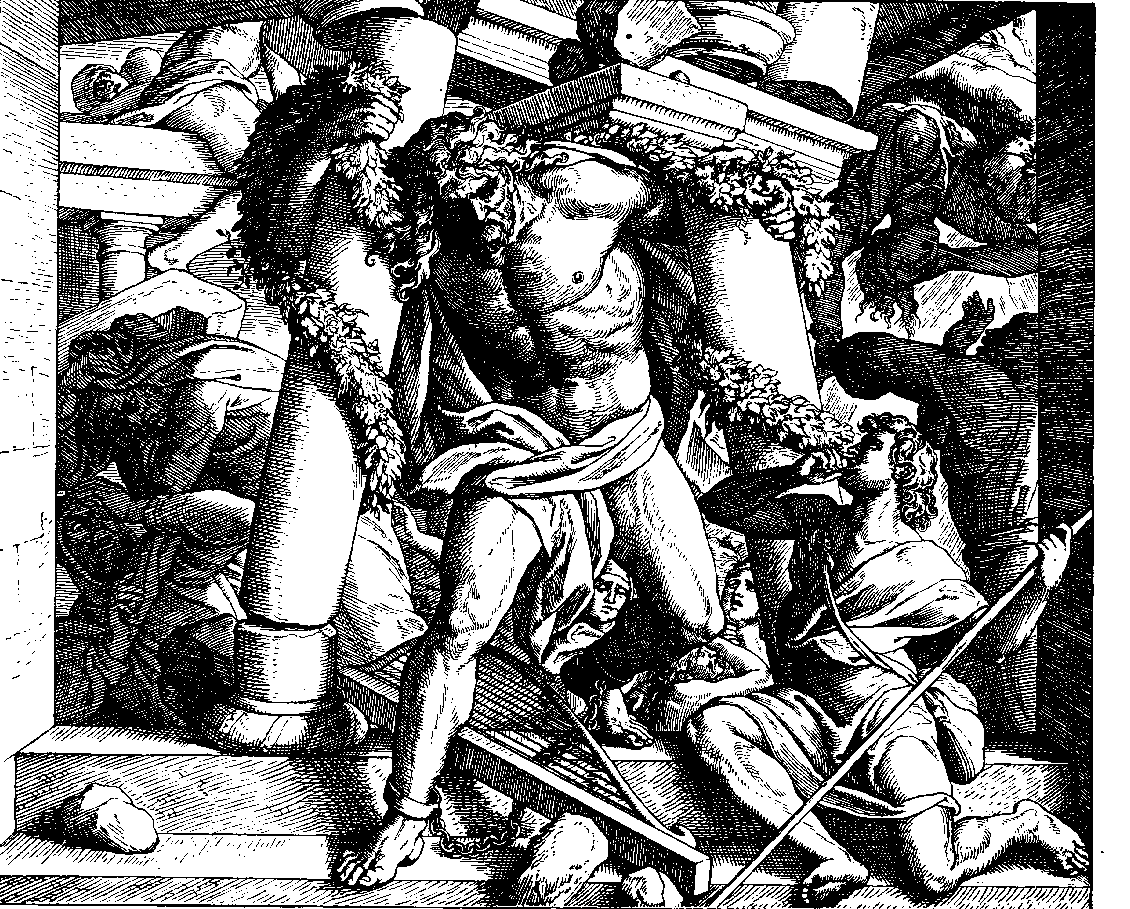
Von Carolsfeld, Samson Destroys the Temple, 1880
Responding to Matthew Griffin and Clayton Chrusch, regarding my earlier post.
Matthew, I am moved by the warmth and generosity of your response. I’m very glad what I wrote was useful to you, all the more because there is a reciprocity: your response was what chiefly inspired a follow-up posting of mine that I’ll be sending along as soon as I’m sure it’s entirely coherent. The Hebrews passage is indeed a key, and I thank you for reminding me of it. Epiphany is a perfect time to be discussing these things–I hadn’t even thought about that!
Second, to Clayton Chrusch: Wow. I admire the marriage of articulate intellect and emotional intensity in this response. Literary criticism could use more of this directness. You raise issues so immense that I know I haven’t thought through them completely yet, but you deserve at least something of an immediate response. Concerning God, yes, as Jesus he is an object, a historical personage–and therefore bound up with all the ambiguities of our relationship to objects, starting with the fact that there is no historical evidence that he even existed. The quest for the historical Jesus leaves us more distanced from God than ever. God could also be considered as a subject, but not as what we usually mean by a subject, namely, the ego of the natural man. Jung’s Self/ego distinction is helpful here, and the Jungian Self is in fact a God-image. If God is a person, it is not the same sense in which I am a person. For example, he is not limited by time and space, those conditions which define ego-consciousness. When Paul says, “I, yet not I, but Christ in me,” he is speaking of the person of Christ as dwelling within him, an interpenetration that the ego or natural man is not capable of. I’m sure you know all this; I’m just struggling to clarify my vocabulary.
I absolutely agree with you that “real” and “true” are words that may be applied to the imagination; otherwise, the imagination’s products are just beautiful illusions, and that gets us nowhere. I was just trying to make the distinction that “real” and “true” here must mean something other than “objectively factual.” A scientist or historian means something else by these terms. That’s why the reality and truth of the spiritual world cannot be proved by scientific or historical methods.
As for suffering, I don’t think you misspoke–in fact, that was probably the part of your response that I admired the most. I see why you qualify the response, though: yes, there are things more important than avoiding pain. Though I’m sure you’d agree that we have to be careful to state this precisely, because what we’re really talking about here is martyrdom. For the Tibetan monks, or the early Christian martyrs, this meant accepting their own suffering for the sake of something more important. But when I teach Milton’s Samson Agonistes, I ask students the troubling question: what makes Samson different from a suicide bomber? Samson too experiences “a renovation of the will so complete and so secure that it doesn’t matter any longer what place” he is in (marvelous passage, by the way). But he also finds acceptable the suffering of the Philistines who will die along with him when he pulls down the Temple, just as the suicide bombers felt when they brought down our Temple, the World Trade Center. Anyway, thank you for a searching and stimulating response.
